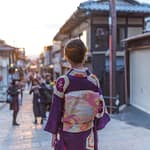TRAVEL AROUND
CHINA
China, one of the largest and most dynamic countries in East Asia, offers an array of experiences that cater to all kinds of travelers. Whether you’re an intrepid backpacker, a couple seeking romance, a solo adventurer, or someone looking for a luxurious getaway, China is a destination that promises something for everyone.
From its ancient traditions and rich history to its cutting-edge modern culture, China presents a fascinating mix of old and new. The country is home to a stunning range of landscapes—from bustling cities with towering skyscrapers to peaceful countryside dotted with rice fields. Whether you’re attending grand festivals, visiting sacred temples, or simply enjoying the natural beauty that stretches across its vast territories, China provides an unforgettable experience for all types of explorers.
If you’re planning your first trip to China, this guide will walk you through all the essentials. We’ll cover the best times to visit, top destinations, what to expect in terms of travel costs, and offer tips to help you get the most out of your adventure. With this knowledge in hand, you’ll be ready to explore all that this incredible country has to offer.
Basic resources & travel tips
If you’re planning your first trip, check out our top travel tips to help you get started. We’ve also included some handy resources to make your visit easier and more enjoyable.
Top Destinations in China

Forbidden City

Great Wall of China

Tibet

Hong Kong

Terracotta Army

Potala Palace

Shanghai

Guilin
Smart Travel Tips & Costs for Visiting China
Traveling to China? You’re in for an exciting adventure! With its rich culture, fascinating history, and buzzing cities, China offers a blend of tradition and modernity like no other. To make your trip smooth, here’s an essential guide with smart tips and cost insights.
Best Time to Visit China
The best time to visit China depends on your preferences:
- Spring (April – May): Ideal for mild weather, blooming flowers, and vibrant festivals. Perfect for exploring both cities and the countryside.
- Autumn (September – October): Cool, pleasant weather with beautiful fall foliage. Great for sightseeing, especially at places like the Great Wall.
- Summer (June – August): Hot and humid, especially in the south, but ideal for northern areas like Tibet. It’s also the peak tourist season, so expect larger crowds.
- Winter (November – February): Cold, especially in the north, but great for winter sports in places like Harbin. Fewer tourists and lower prices, though Chinese New Year can be busy.
Best Overall: Spring and autumn for mild weather and scenic beauty.
Travel Tips
Language Barrier
- Mandarin is the official language, but don’t panic if you don’t speak it—learn a few phrases or use translation apps. Locals appreciate any effort to communicate, and these tools will make things easier.
Visa and Entry Requirements
- Most travelers will need a visa. It’s not a last-minute thing, so apply well in advance. Make sure your visa is for the correct type (tourism, business, etc.), and expect to wait a bit for approval.
Money & Currency
- Currency: The currency is the Chinese Yuan (CNY). It’s recommended to carry some cash as not all places accept cards, especially in smaller towns.
- ATMs & Currency Exchange: ATMs are available in most cities, and currency exchange is available at airports and banks. Credit cards are accepted in many tourist areas.
- Mobile Payments: WeChat Pay and Alipay are extremely popular in China. If you plan to stay longer, setting up one of these apps may be useful.
Sim Cards & Internet
- Internet Access: Many popular websites (Google, Facebook, etc.) are blocked in China. Consider using a VPN (Virtual Private Network) to access your favorite sites. It’s a simple and effective workaround for staying connected.
- SIM Cards: You can buy a SIM card (Here) upon arrival in China for local calls and data. Major providers include China Mobile, China Unicom, and China Telecom.
- Connectivity: Wi-Fi is available in most hotels, cafes, and public spaces. However, access to global websites may be limited. A VPN is your ticket to unfiltered access—download it before you arrive.
Cultural Etiquette
- Respect Local Customs: In Chinese culture, respect is important, especially towards elders. It’s common to greet people with a slight bow or handshake.
- Dress Modestly: Particularly in religious sites or rural areas, modest clothing is appreciated.
- Tipping: Tipping is not a common practice in China, and it can sometimes be seen as awkward.
Food & Water
- Street Food: Chinese street food is a must-try, but be cautious with cleanliness. Look for stalls with a high turnover of customers.
- Water: Tap water in China is not potable. Stick to bottled water, or boil water before drinking.
Health & Safety: Stay Aware
- China is generally safe, but like in any big country, watch your stuff in crowded places. It’s a good idea to have travel insurance for peace of mind, and vaccinations for certain diseases might be recommended depending on your itinerary.
- Petty theft can occur in tourist spots, so keep your valuables secure.
Shopping
- Markets: China is famous for its markets, especially for souvenirs. Bargaining is common in many markets, so don’t be afraid to negotiate prices.
- Quality Control: Be mindful of quality when buying items, especially electronics or knock-off brands.
Health Precautions
- Travel insurance is highly recommended, covering health, accidents, and theft.
- Vaccinations for Hepatitis A and B, Typhoid, and other diseases may be recommended depending on your travel plans.
Travel Costs
The cost of traveling in China can vary depending on the region, your travel style, and the activities you plan to do. Below are estimated costs for different types of expenses
Accommodation
- Budget: Hostels or budget hotels can cost between CNY 80–200 ($12–30) per night.
- Mid-Range: A decent 3-star hotel will set you back CNY 300–700 ($45–100).
- Luxury: Treat yourself with high-end hotels or resorts ranging from CNY 800–2000+ ($120–300) per night.
Meals
- Street Food: The best way to dive into China’s culinary scene without breaking the bank. Expect to pay CNY 10–30 ($1.5–5) for a tasty street snack.
- Budget Eats: A basic restaurant meal will cost around CNY 30–70 ($4–10).
- Mid-Range Dining: Enjoy a sit-down meal in a restaurant for CNY 80–150 ($12–22).
- Fine Dining: For something special, expect CNY 200–400+ ($30–60+) per person at upscale spots.
Transportation
- Metro & Buses: Urban public transport is a steal, with metro rides starting at CNY 2–8 ($0.30–1.20).
- Didi (Rideshare): Short rides typically cost CNY 20–50 ($3–7), depending on the distance.
- Taxis: The starting fare is usually CNY 12–15 ($2), and extra charges apply based on distance.
- Trains: High-speed train tickets range from CNY 100–600 ($15–90), depending on the route.
Attractions & Activities
- Museums & Temples: Most historical sites and museums charge an entry fee. Many sites charge between CNY 20–100 ($3–15), but some major attractions (like the Forbidden City) may charge higher fees around (CNY 60–80).
- Guided Tours: Expect to pay anywhere from CNY 150–500 ($22–75) for a guided tour.
Shopping & Souvenirs
- Street Markets: Souvenirs, like local handicrafts or teas, often go for CNY 10–100 ($1.50–15). The key is knowing how to haggle!
- Luxury Goods: Western luxury goods (like branded bags, electronics) will be similar to international prices or slightly cheaper in larger cities.
Sample Daily Budget (per person)
- Budget Traveler: CNY 200–300 ($30–45)
- Accommodation: Hostel or budget hotel
- Meals: Street food and budget restaurants
- Transportation: Public transport or occasional taxi
- Mid-Range Traveler: CNY 500–1000 ($75–150)
- Accommodation: 3-star hotel
- Meals: Mid-range restaurants
- Transportation: Public transport and occasional rideshare
- Attractions: Entry fees to major attractions
- Luxury Traveler: CNY 1500–3000+ ($220–440+)
- Accommodation: 5-star hotel or luxury resort
- Meals: Fine dining
- Transportation: Private cars or luxury trains
- Attractions: VIP or guided tours
Final Word: Travel Smart, Travel Wise
China offers something for every kind of traveler. Whether you’re exploring its vibrant cities, wandering ancient temples, or eating your way through local markets, the country is full of surprises and new experiences. Be smart about your budget, respect the culture, and enjoy the journey—because China is a place like no other!
Safety standards in China
Public Safety: China is generally safe for tourists, with visible police presence in major cities. Surveillance is widespread, but it’s important to carry your passport at all times, as random checks can happen.
Traffic & Roads: Traffic can be chaotic in busy cities. Be cautious when crossing streets, as traffic laws aren’t always followed. Taxis and public transport are reliable, but be extra careful in rural areas or on local roads.
Healthcare: Healthcare quality is good in cities, but rural areas may have limited access. Always carry travel insurance. Tap water isn’t drinkable—stick to bottled or boiled water. Be mindful of air pollution in large cities.
Food Safety: Street food is delicious but be cautious—stick to busy, clean stalls. Larger restaurants are safer, but always ask locals for trusted recommendations. Carry a translation card if you have food allergies.
Natural Disasters: China can experience earthquakes, floods, and typhoons (especially in coastal areas). Stay informed about weather conditions and follow any local advisories.
Personal Safety: Crime is low, but watch out for pickpockets, especially in crowded tourist spots. Be aware of scams and always keep your belongings secure. In remote areas, traveling with a guide is recommended.
Emergency Numbers:
- Police: 110
- Ambulance: 120
- Fire: 119
Cultural Sensitivity: Respect local customs—China has strict laws on public behavior, especially regarding politics and drug use (which is severely penalized). Avoid controversial topics, and keep public displays of affection to a minimum.
By following these simple safety tips, you’ll enjoy your trip while staying safe and respecting local norms!



